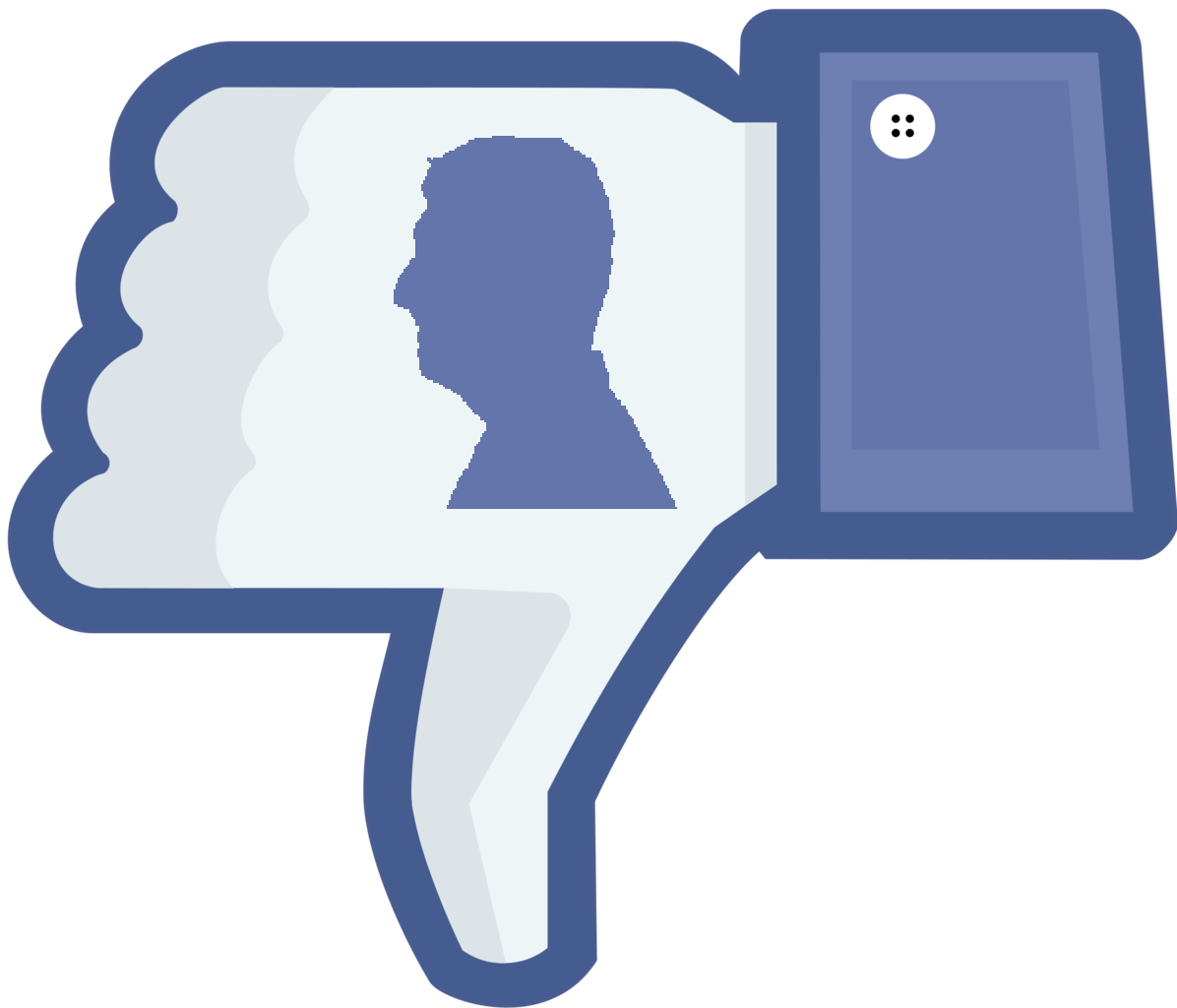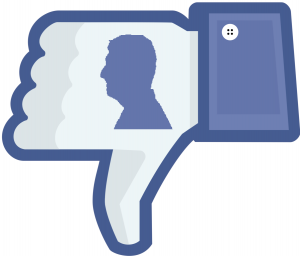Birthdays, Photos, and More: Replacing Facebook A Step at a Time

In my life, Facebook is the sum total of five sets of “social” functions.
- Birthdays
- Photos
- Personal Advertising
- Sharing with “Those Who Only Use Facebook”
- Keeping in Touch
I want to move away from Facebook, but I don’t want to lose out on the above perks of having a “social” network. I put social in quotes because Facebook has ceased to be a means to socialize. The signal to noise ratio is too high. People use their cell phones to txt or email any immediate information, and the sharing of photos has started to migrate to other sites (sites with less draconian business practices). “Moving Away From Facebook” has become a popular topic, and this trend will only continue. After 8 years of daily usage there’s no easy way to do this, so I figure it’s better to rip it off like a bandage and remove it completely.
Here’s how I’m moving away from Facebook: replace each of the above items. I believe that it can be done, without much difficulty. The first step is getting your data out of Facebook. Luckily, nowadays they make this rather easy for you. You can move away from Facebook, and your life will be better for it.
You can move away from Facebook, and your life will be better for it.
Birthdays
For birthdays, Facebook allows you export all of your birthday data as a calendar you can import on your iCal or Google Calendar (or open source calendar). So now you won’t need to log into Facebook to check whose birthday is coming up.
Photos
Photos are a difficult problem. On the one hand, it’s very easy to post your photo up to Facebook from your phone. On the other hand, who knows how that photo will be used, and who will eventually end up looking at it. Yeah, maybe a second cousin once removed is considered a family member, but do you really want anyone who uses their computer to be able to browse photos of your 8 year old’s recital? Where does it end? We are just now realizing as a society that the ubiquitous surveillance that comes from social media may be depriving our youth of their ability to be young and reckless. It’s certainly depriving us of a shared sense of privacy, and often dignity. Remember when the pain of looking at boring vacation photos was a trope brought up in movies and television? When did that change? When our cell phones became our cameras, did our vacations become inherently more interesting? Maybe we’re all just paying less attention, with our second and third screens ever vying for our wandering eyes?
When our cell phones became our cameras, did our vacations become inherently more interesting?
At any rate, there are many competing services for photo hosting. I personally recommend allowing multiple competing services (Box, DropBox, Google) to back up all your photos for you. They all have facilities for sharing or emailing photos, and you’ll sleep better at night knowing the creepy big data teams at Facebook aren’t using your photos to learn something about your purchasing behavior.
Here’s the quick-start guide to getting photo data out of Facebook,
- Back up all your Facebook photos that you’ve previously updated. You can do this in one fell swoop directly from Facebook.
- Download all the photos that you’ve been tagged in. PhotoGrabber is a great piece of software to accomplish this.
- Set up a replacement photo backup service on your phone. DropBox and Box both have fine products to accomplish this, both of which have apps that set up the process for you and don’t mine your data for facial heuristics.
Personal Advertising
One of the main reasons I keep my Facebook account is as an avenue to promote my apps/games/products/blog posts. This is always just a short link to one of my blog posts along with a blurb, and is something that you can set up to happen automatically. As this blog is backed by WordPress, from this point forward I’ll be using the excellent ‘Add Link to Facebook‘ plugin which auto-posts my blog posts to my Facebook wall. Really, you don’t even have to get rid of Facebook to be rid of Facebook. Much like a search engine, Facebook becomes just another channel via which your data travels without your intervention.
… you don’t even have to get rid of Facebook to be rid of Facebook. …Facebook becomes just another channel via which your data travels without your intervention.
Sharing with “Those Who Only Use Facebook”
… there are those who only use the internet a single purpose: to Facebook. How do you cut Facebook out of your own life without cutting yourself out of theirs?
Strange as it may sound, there are those who only use the internet a single purpose: to Facebook. How do you cut Facebook out of your own life without cutting yourself out of theirs? For me, the answer came in two forms. Direct email, and a WordPress plugin. Any personal communication that needs to happen can happen via email, even if it’s directly into the Facebook email system via that users @facebook.com email account. Certainly encourage them to move to a dedicated email client, but don’t be too surprised if that doesn’t occur. Any public communication (i.e. blog posts, public photos, work announcements) will be automatically posted to my Facebook through ‘Add Link to Facebook‘ as described above. These contacts likely won’t even notice a change, other than an increase in actual personal communication between you.
These contacts likely won’t even notice a change, other than an increase in actual personal communication between you.
Keeping in Touch
Here’s something that Facebook has been less and less successful at: allowing you to truly communicate with people past the surface level. A week ago I declared on my Facebook wall that I would be answering any posts and comments via direct email. In the immediate days following this announcement I had a number of in-depth, often emotional email conversations with friends that I hadn’t really talked to in years. We had certainly posted little blurbs on each others wall, but it held no emotional weight. By encouraging everyone to engage in everyone else’s conversations, Facebook has removed the collective emotional weight of our discourse. How then, to regain our intimacy? Email. As strange as it may sound, Email is both ubiquitous and capable of carrying as much emotional depth as you can muster. While video calls give an immediate connection, how do you keep in touch with 200+ friends and relatives via video chat? There just aren’t enough hours in the day.
So export your Facebook contacts right away. If you have a Gmail account, I recommend using Google Contacts Sync to bring in all your Facebook friends into your Google contacts list. From there, you can export them as a CSV to your email client of choice. Now that you’ve got all your Facebook contacts in Gmail the truly hard part begins: Admitting to yourself that most of these people would not naturally be in your worldview, and do not in any meaningful way affect your existence.
Now that you’ve got all your Facebook contacts in Gmail the truly hard part begins: Admitting to yourself that most of these people would not naturally be in your worldview, and do not in any meaningful way affect your existence.
That’s a hard pill to swallow, to be sure. It may feel like you’re going from having “hundreds” of friends to having “a few” friends. Are you? In this day and age, it’s incredibly easy to look someone up. If you dropped Facebook today, how many of your connections would ever type your name into their email client? Are these people contributing to your life?
After a great deal of time wrestling with this issue, I believe the answer is no. I’ve easily spent over an hour a day for the past ten years checking Facebook (and Myspace before it). Many days two or three. Is that healthy? What did I gain? In ten years I made one actual new friend because of social media, and it was back on Myspace when you could meet strangers geographically. Social media is a false affirmation that I gave myself daily for ten years. I should have been playing the guitar instead.
Seriously, think about every ‘deep’ conversation you ever had on Facebook. It shouldn’t take you long. Add in every photo that changed your life, every news item that you would have never seen on any other media outlet, and every social outing you went on solely because you found out through Facebook. It likely still won’t take more than a few minutes…, and I almost guarantee you that you can count those times on your hands and toes. Consider then how many posts you made in total, how many posts your friends and coworkers have made in total. Millions of hours, millions of posts, an avalanche of trivialities. What have we been doing all this time? I say now, for me, that every single one of those important photos, conversations, and events could have and in the future will have been made over email and real interpersonal exchange.
Social media is a false affirmation that I gave myself daily for ten years. I should have been playing the guitar instead.
Bottom line:
- If you want to make new friends: find a local Reddit or meetup group. Facebook has little return on investment.
- If you want to strengthen the friendships you have: email your friends.
- If you need to make immediate plans: txt your friends directly. If you don’t have their phone numbers you should think to yourself “Why am I trying to make immediate plans with someone who has never shared their phone number with me?”
- If you need a place to back-up your photos then use a dedicated back-up service. Many give you tens of gigabytes of storage for free.
- If you want to share photos with a group of people, email them directly. Facebook provides no guarantee the viewer won’t download the images (and is in that respect no better than email), and the Facebook corporation uses your image data for their own nefarious purposes. Honestly, you should first ask yourself if these people really need to see some photos of something that you did, and if you’re fine with all of their friends/coworkers/relatives seeing those photos too?
- If you want to share photos publicly, consider getting a blog where you host your images (perhaps in galleries). Only then can you control the data.
- If you have contacts who solely communicate through Facebook, email them directly at their @facebook.com email addresses, encourage them to move to a dedicated email provider, and link your personal blog to your Facebook account.
I know it sounds tough, but with a little perseverance you too can remove Facebook from your life, increase your free time, and improve your interpersonal relationships through real communication. Trust me, it’s worth it!
